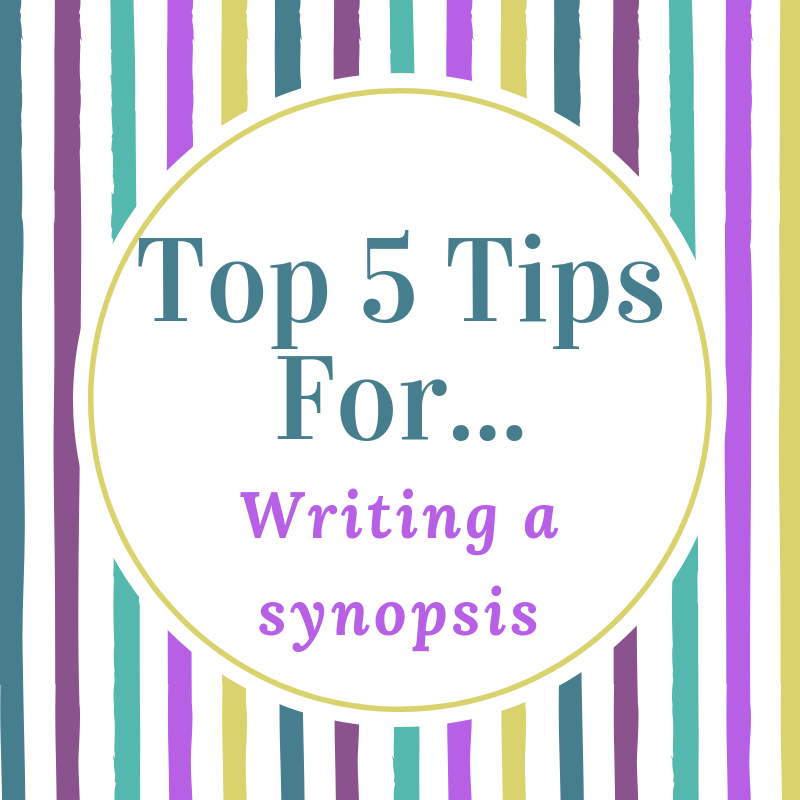Two of the biggest compliments I’ve ever received are to do with my writing. The first came from a lovely rejection where the person said I was a natural storyteller (this email is now framed and on my wall with the relevant sentence highlighted!), and the second came from my editor when she said I write a good synopsis! As this was a conversation over the phone I’ve had to commit the moment to memory but still, it’s treasured. So, with the confidence boost that gave me, I decided this month’s top five tips would be on writing the dreaded synopsis!
We all hate them. They’re horrible. They seem to take all the fun of our ideas and squeeze the creativity out until you’re left with a husk of a story. It feels boring and so A,B,C… but it is unfortunately, necessary. As with everything, there’s loads of information on the internet about it, some good, some bad, and a lot of it contradictory. So hopefully the key things I’ve found here will help you to get to grips with your synopsis, or give you the confidence to try and write one.
Twitter pitch to identify your key plotline
If you were Twitter pitching, or marketing your novel in 280 characters, what would you say about it? For The Little Theatre on the Seafront, I’d say something like:
Lottie needs to fulfill her nan’s dying wish, but can she save the theatre and still follow her heart?
Here we have the key things of the novel. The death of her nan is the inciting incident and we know that means trying to save a theatre. Then we find out the conflict is achieving that and following her heart. This is the key plot line. Forget the other subplots, minor characters and their conflicts, this is what the synopsis needs to focus on, introducing only the characters who are essential to this plot.
Bullet point each chapter to keep things in order
Now you’ve identified the key theme of your novel go through and bullet point each chapter so you can start to build the synopsis. Choose the aspects that progress the main storyline and begin to build a paragraph structure using these. Don’t worry about there being a lack of sentences at this stage, we’ll pretty it up later.
Don’t treat it like a blurb
This one is actually quite important. The synopsis is most definitely not a blurb! You don’t want hooks, catchy phrases or cliffhangers. Your job in the synopsis is to tell the agent or publisher what actually happens. So as you’re building the structure of your synopsis don’t try and sell your novel, stick to the facts.
Include key info – when, where, genre etc.
The publisher or agent is going to want to know this information so you need to get this in somewhere. Where is up to you, but I’d suggest fairly early on so you’re setting the scene properly. You don’t want them to find out halfway through that it’s a historical novel when they’ve been imagining it as contemporary. As part of structuring your synopsis make sure you get in the key information.
Make it pretty
Now you’ve got all the key information in and the basis of a synopsis! Well done! But your synopsis looks like nothing more than a mish-mash of short, stumpy sentences. Never fear, now you can start re-writing them so they work together and adding in the bits that make it sound like you.
One of the hardest things is still conveying your author voice in what feels like such a factual document. But this is where my last tip comes in.
Just like editing polishes your novel, prettifying your synopsis is where you find places you can add elements of yourself. For example, your synopsis might say: Helena then realises she has loved Hugo all along.
How would you write this key sentence in your novel? Would you say something like: In a moment of clarity, Helena realises the depth of her feelings for Hugo. She loves him more than anyone she has ever loved before. This conveys the same information, but sounds a bit more like an actual ‘voice’.
As a starting point, are there words you can add into your short, sharp sentences to convey more emotion and bring the synopsis back to life?
Don’t be afraid to play around and add bits in, or re-write sentences so it sounds like something you wrote and therefore conveys the tone of your novel.
Oh, and don’t be surprised if it takes more than one attempt! That’s perfectly normal!
Hopefully you’ve found some of my ramblings above helpful! I’d love to know your own tips for writing a synopsis in the comments below!
